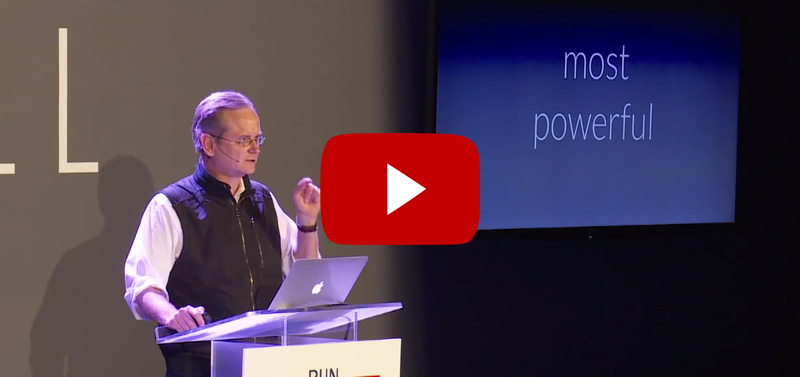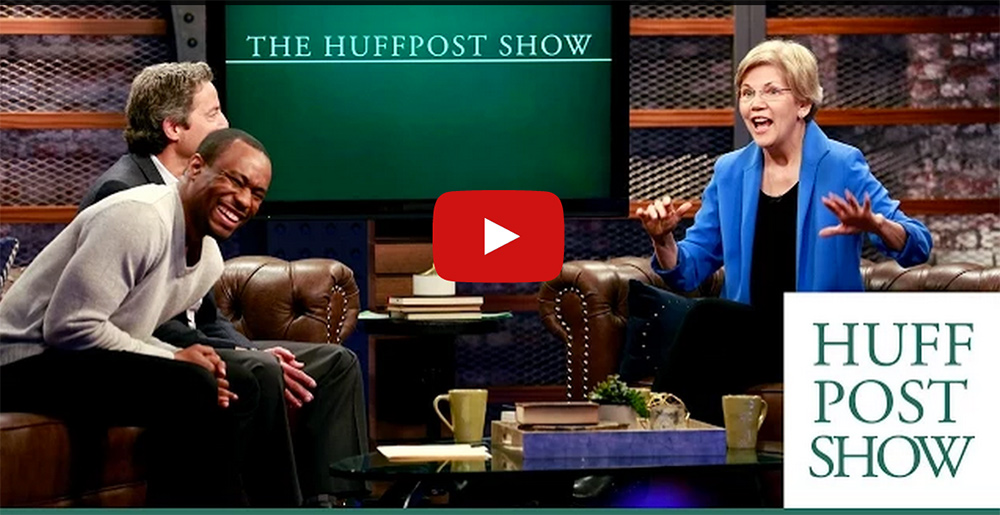Dear MoveOn members,
All eyes are on Baltimore. Massive protests are ongoing in memory of Freddie Gray, a 25-year old man who died of spinal injuries he sustained while in police custody.1 Media coverage has focused largely on episodes of violence in the streets—often missing essential pieces of the rapidly unfolding story.2
In this moment of crisis, we can learn something from Ferguson: the most important voices to listen to right now are local ones. And the most important images and videos will be captured not by out-of-town professionals but by the people of Baltimore themselves.
That's why MoveOn is partnering with our friends at the online civil rights organization ColorOfChange.org to launch a website and a support team to find and spread videos, tweets, and images from local organizers, observers, and residents of Baltimore. We'll help elevate important stories and perspectives through the site, our social media accounts, and our relationships with journalists.
Here's how to get involved: Check out moveon.org/baltimore—we'll be posting there regularly over the next week, as this story continues to unfold. If you're in Baltimore or connected to people there, or if you can offer technical assistance, email us at baltimore@moveon.org or send us a direct message on Twitter at @MoveOn. (You can also share your thoughts and perspectives on what's happening in Baltimore, and what else you'd like to see from MoveOn, at those addresses.)
And if you see something you think the nation should see, please tweet it with the hashtag #BaltimoreUprising or #FreddieGray and tag @MoveOn and @ColorOfChange in your post so we don't miss it.
The media wants to focus on broken windows and damaged property. But the overwhelming causes of violence must be addressed. What Dr. Martin Luther King, Jr. said in 1968 is still true today:
But it is not enough for me to stand before you tonight and condemn riots. It would be morally irresponsible for me to do that without, at the same time, condemning the contingent, intolerable conditions that exist in our society. These conditions are the things that cause individuals to feel that they have no other alternative than to engage in violent rebellions to get attention. And I must say tonight that a riot is the language of the unheard.3
Make no mistake: the conditions in Baltimore have been intolerable. Not just in the death of Freddie Gray. To a degree that shocks outsiders, the Black citizens and people of color in Baltimore have been bleeding for years under the unprovoked clubs and fists of some Baltimore police officers.
As a shattering Baltimore Sun investigative piece last year documented, more than 100 cases of police brutality led to court judgments or settlements between 2011 and 2014 alone.4 And that surely represents only a small fraction of the incidents that actually took place. The details of many of these cases are shocking. Here's a quote from the Sun:
Victims include a 15-year-old boy riding a dirt bike, a 26-year-old pregnant accountant who had witnessed a beating, a 50-year-old woman selling church raffle tickets, a 65-year-old church deacon rolling a cigarette and an 87-year-old grandmother aiding her wounded grandson. Those cases detail a frightful human toll. Officers have battered dozens of residents who suffered broken bones—jaws, noses, arms, legs, ankles—head trauma, organ failure, and even death, coming during questionable arrests. Some residents were beaten while handcuffed; others were thrown to the pavement.
Today, the nation is starting to wake up to what the residents of Baltimore have already been dealing with for a very long time.5 But this history of violence can easily be obscured by images of flipped cars in the streets. And unless local voices are heard, many Americans may react to the escalating violence as they did in King's day: by supporting more aggressive policing, rather than a reckoning with the structural conditions that turned Baltimore into a tinderbox.
What happens over and over in crises like these is that America and the world see a distorted picture, refracted through a sensationalist press corps and the power of public officials to define the media narrative. But social media offers a chance to turn the tables, to make sure people see what's really happening and how it affects regular people's lives.
Let's help amplify the voices that need to be heard in this moment, and stand in solidarity with the movement in Baltimore and across the nation fighting for a day when no new name becomes a tragic hashtag.
Thanks for all you do,
–Corinne, Ben O., Joan, Nick, and the rest of the team
P.S. Our friends at Showing Up for Racial Justice are holding a conference call aimed primarily at white Americans who want to take action in solidarity with Black communities to stop police violence. RSVP to find out more (or share with a friend): http://www.moveon.org/r/?r=304236&id=113684-10220574-yshHfOx&t=2
Sources:
1. "The Mysterious Death of Freddie Gray," The Atlantic, April 22, 2015
http://www.moveon.org/r/?r=304229&id=113684-10220574-yshHfOx&t=3
2. "10,000 Strong Peacefully Protest In Downtown Baltimore, Media Only Reports The Violence & Arrest of Dozens," Black Westchester, April 27, 2015
http://www.moveon.org/r/?r=304231&id=113684-10220574-yshHfOx&t=4
3. "The Other America," Rev. Martin Luther King, Jr., March 14, 1968
http://www.gphistorical.org/mlk/mlkspeech/
4. "Undue Force," The Baltimore Sun, September 28, 2014
http://data.baltimoresun.com/news/police-settlements/
5. "The Brutality of Police Culture in Baltimore," The Atlantic, April 22, 2015
http://www.moveon.org/r/?r=304232&id=113684-10220574-yshHfOx&t=5
Want to support our work? We're entirely funded by our 8 million members—no corporate contributions, no big checks from CEOs. And our tiny staff ensures that small contributions go a long way. Start a monthly donation here or chip in a one-time donation here.
This email was sent to eddie alfaro on April 28, 2015. To change your email address or update your contact info, click here. To remove yourself from this list, click here. 


